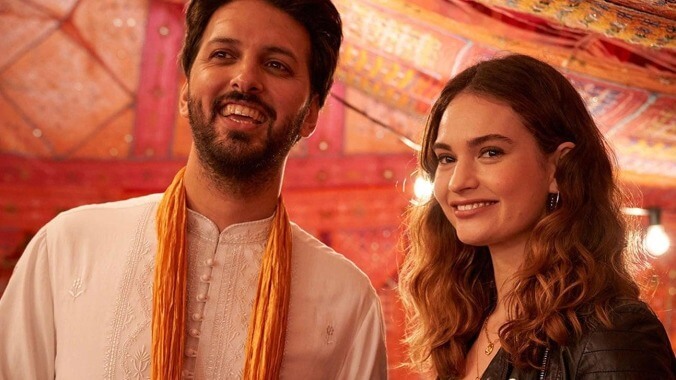What's Love Got To Do With It? review: Lily James in a well-meaning but misguided rom-com
Culture-clash tale about a British-Pakistani arranged marriage turns into the hapless story of a white filmmaker's sad love life

From My Big Fat Greek Wedding to Bride & Prejudice to the recent Netflix comedy You People, culture clashes are a romcom staple, the perfect recipe for built-in tension and contrasting aesthetics, and the jumping off point for misunderstandings and hijinks. The latest romantic comedy to tackle culture clashes—though in a much more substantial and direct way—is director Shekhar Kapoor’s What’s Love Got To Do With It, written and produced by Jemima Khan, who’s also known for producing excellent documentaries like We Steal Secrets: The Story of WikiLeaks. Though the film undoubtedly raises a number of intriguing questions about the tradition of arranged marriages in a dating app world, it fails to live up to its potential, instead ending up charmless and at times even tone-deaf.
Starring Lily James and Shazad Latif, What’s Love Got to Do With It follows Zoe (James), an award-winning documentary filmmaker who’s unlucky in love and fresh out of ideas for her next film. After learning that her childhood best friend Kaz (Latif) has agreed to let his Pakistani parents find him a bride, Zoe decides Kaz and his bride-to-be (Sajal Aly) are the perfect subjects for her next documentary. But as the wedding day grows nearer, cracks begin to show in what Zoe thought would be a cut-and-dried story, and her own romantic history threatens to ruin the lives of Kaz and his family.
The idea at the core of What’s Love Got to Do With It is rock-solid. Early on, the film explicitly highlights the hypocrisy of Westerners turning their nose up at the idea of an arranged marriage when nearly half of all marriages in the U.K. end in divorce. A film earnestly exploring someone’s contrasting desire to honor their cultural heritage while reconciling their own modern attitudes about romance is compelling on its own.
But where What’s Love fails is in framing the story not as a tale of Kaz’s deeply personal dilemma, but as a portrait of Zoe’s professional struggles and her inability to find love. Between Zoe’s use of banal Disney princess metaphors (she tells her young charges about Cinderella “breaking glass ceilings instead of glass slippers”), her repeated bouts of self-pity and her complaints that she can’t find a man, she’s also remarkably unlikable. She’s a poor friend who’s constantly making the wrong ethical decisions and meddling with the lives of Kaz and his family. She harbors her own romantic feelings for Kaz but is unable to reconcile her personal beliefs about arranged marriage, continually pestering him to explain why he’s put up a “burka around [his] whole identity.”
 Keep scrolling for more great stories.
Keep scrolling for more great stories.
